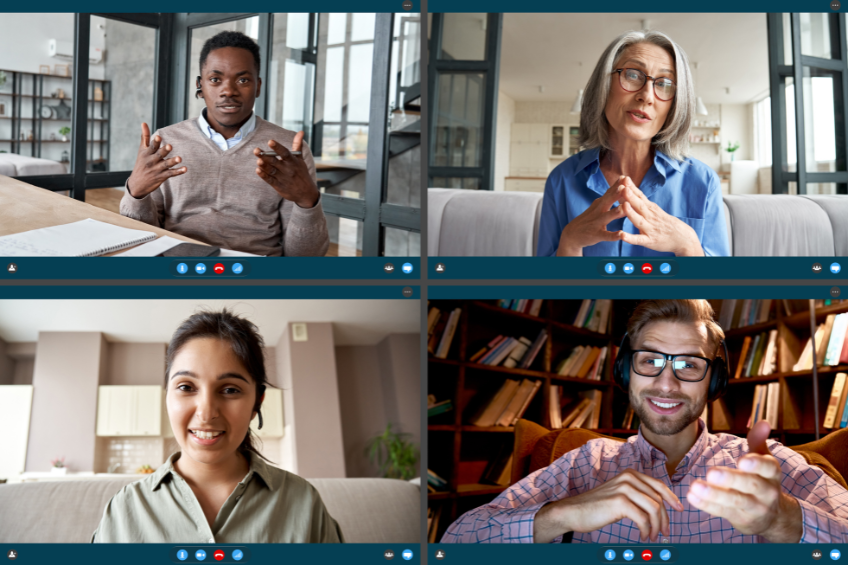
Virtual Facilitation Certificate Program
You’ve been asked to move your in-person training online—or maybe you’ve already made the shift, but something’s missing. The sessions run, but the energy isn’t there. Engagement drops, participation is hit or miss, and it’s hard to tell if people are learning. You’re not alone. Many trainers are still working to figure out what makes virtual training functional and genuinely effective.
This challenge is widespread across organizations. With more teams working remotely or in hybrid environments, there’s a growing demand for high-quality online learning. Yet many virtual training sessions fall short, either by copying classroom delivery without adapting the design or using tools without a clear strategy. The result is low engagement, limited learning transfer, and training that doesn’t meet its goals.
This five-week certificate program provides a clear, practical path to help you convert your in-person sessions into engaging virtual learning. You’ll explore the tools, techniques, and design strategies that bring virtual training to life. With live sessions, instructor feedback, one-on-one coaching, and a pilot delivery, you’ll receive step-by-step support throughout the program.
By the end, you’ll have a ready-to-deliver virtual session, a deeper understanding of how to keep learners engaged, and a toolkit of strategies to support online learning success. Whether adapting existing content or building something new, you'll leave with the skills and confidence to deliver virtual training that works.

- Identify and apply best practices for designing and delivering virtual training.
- Transform in-person training into interactive and engaging virtual formats.
- Use web conferencing tools strategically to support active learning and engagement.
- Create a virtual learning environment that encourages participation and collaboration.
- Design activities that reinforce learning before, during, and after the session.
- Build a detailed implementation plan for delivering high-quality virtual training.
- Apply activity-based design techniques to support strong learning outcomes online.

This program is for facilitators, trainers, and instructional designers who want to improve their design and delivery of virtual training. Whether adapting existing sessions or building something new, you’ll gain tools, support, and feedback to make your virtual learning more engaging and effective.
You should attend if you
- Are being asked to translate your in-person sessions to a virtual environment and feel uncertain about the process
- Are already leading virtual sessions but struggle to maintain engagement or achieve the goals you’ve set
- Want to use virtual tools more strategically to create a supportive learning environment.
- Need to design or revise a virtual session and want to ensure it’s effective and interactive.
- Are looking for personalized coaching, practical resources, and peer feedback to grow your confidence
- Work in roles where learning and development, onboarding, or knowledge sharing are delivered online
By the end of this program, you will have the skills and confidence to lead virtual sessions that connect with learners, support collaboration, and improve learning outcomes, regardless of the platform or audience.

This multi-session certificate program is designed to help you build confidence and competence as a virtual facilitator. Through a combination of live instruction, peer dialogue, and self-directed work, you’ll engage in structured practice using digital tools and techniques. Each module gives you time to experiment with your own facilitation style, reflect on group dynamics, and apply strategies that support online engagement.
You’ll also take away a practical workbook with tools, examples, and checklists to use back on the job.
Workshop activities include
- Using digital tools to manage interaction and engagement
- Planning and leading short facilitation segments
- Observing and analyzing real-time facilitation examples
- Participating in peer feedback and coaching circles
- Completing self-reflection exercises between sessions
- Applying learning through a final facilitation assignment
- Creating an action plan to guide continued skill development





